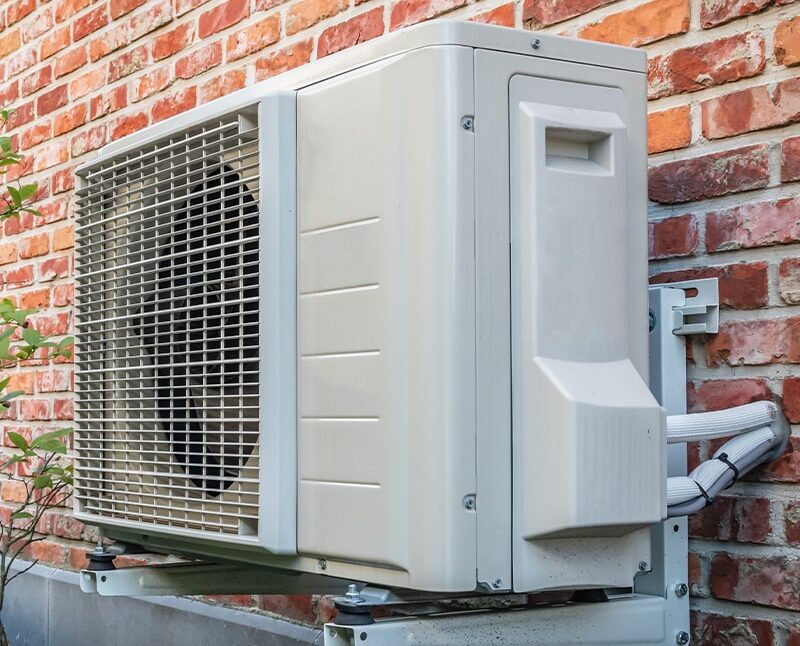Heat pumps are an efficient and versatile option for heating and cooling your home, but like any HVAC system, they have a limited lifespan. Understanding how long a heat pump is expected to last, recognizing the signs that it needs to be replaced, and knowing why a licensed HVAC technician should handle the installation can help you make informed decisions about your home’s comfort.
How long does a heat pump last?
The average lifespan of a heat pump is typically 10 to 15 years, but this can vary depending on factors like usage, maintenance and the quality of the unit. Heat pumps in moderate climates, where they don’t have to work as hard, may last closer to the upper end of this range. However, in areas with extreme temperatures or heavy use, the lifespan may be shorter.
Regular maintenance plays a critical role in extending the life of your heat pump. Annual tune-ups, filter replacements and inspections by a licensed HVAC technician can prevent wear and tear, ensuring the system operates efficiently for as long as possible.
Signs your heat pump needs to be replaced
While regular maintenance can extend the life of your heat pump, no system lasts forever. Here are some common signs that it may be time to replace your heat pump:
• Frequent Repairs: If you’re calling a technician more often than usual for repairs, it may be more cost-effective to replace the unit rather than continuing to fix it.
• Rising Energy Bills: A decline in efficiency is a natural part of aging for heat pumps. If your energy bills are increasing without a change in usage, your heat pump may be struggling to perform.
• Inconsistent Temperatures: If some rooms in your home are too hot or too cold, your heat pump could be losing its ability to distribute air evenly.
• Unusual Noises: Banging, grinding or squealing noises can indicate serious internal issues that may warrant replacement.
• Age of the Unit: If your heat pump is over 10 years old and is showing signs of wear, it’s worth considering a replacement. Newer models are far more energy-efficient, which can save you money in the long run.
Why a licensed HVAC technician should install your heat pump
Installing a heat pump is a complex process that requires professional expertise. Here’s why you should hire a licensed HVAC technician for the job:
• Proper Sizing and Installation: A licensed technician will assess your home’s size, insulation and other factors to ensure the heat pump is properly sized and installed for optimal performance. Incorrect installation can lead to inefficiency, higher energy bills and a shorter lifespan for the unit.
• Code Compliance and Safety: Licensed HVAC professionals are familiar with local building codes and safety standards. They’ll ensure the installation complies with all regulations, reducing the risk of hazards like electrical issues or refrigerant leaks.
• Warranty Protection: Most heat pump manufacturers require professional installation to validate the warranty. DIY or unlicensed installations could void your warranty, leaving you responsible for costly repairs or replacements.
• Long-Term Savings: Proper installation ensures your heat pump operates at peak efficiency, saving you money on energy bills and reducing the likelihood of future repairs.
Call HVAC 911 Today
If your heat pump is showing signs of wear or nearing the end of its lifespan, trust HVAC 911 to connect you with licensed, bonded and insured contractors who will expertly install your new heat pump.
They employ highly qualified service technicians who receive over 10,000 hours of training and undergo rigorous background checks. Call HVAC 911 today for expert referrals and reliable service!
